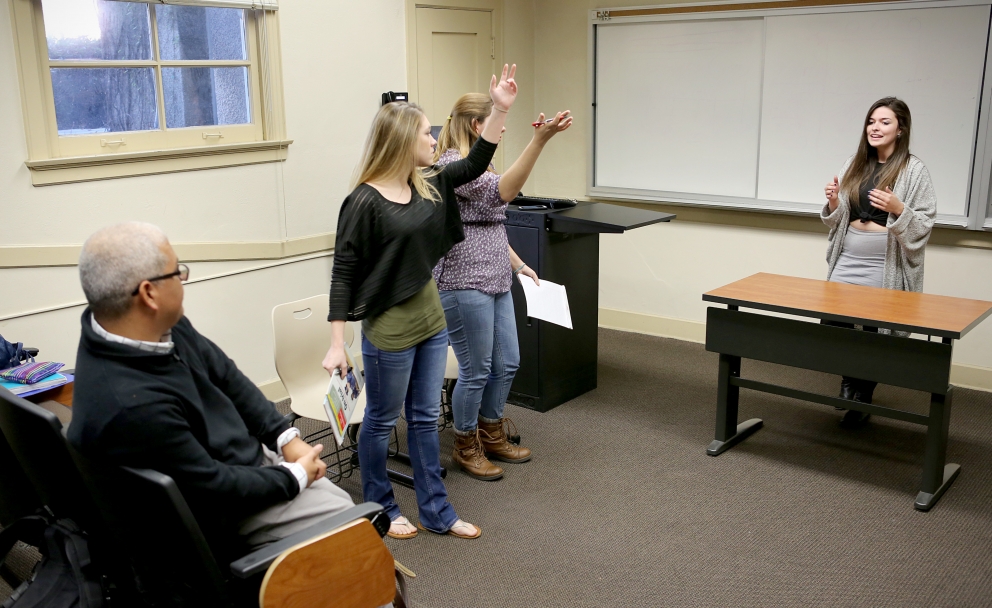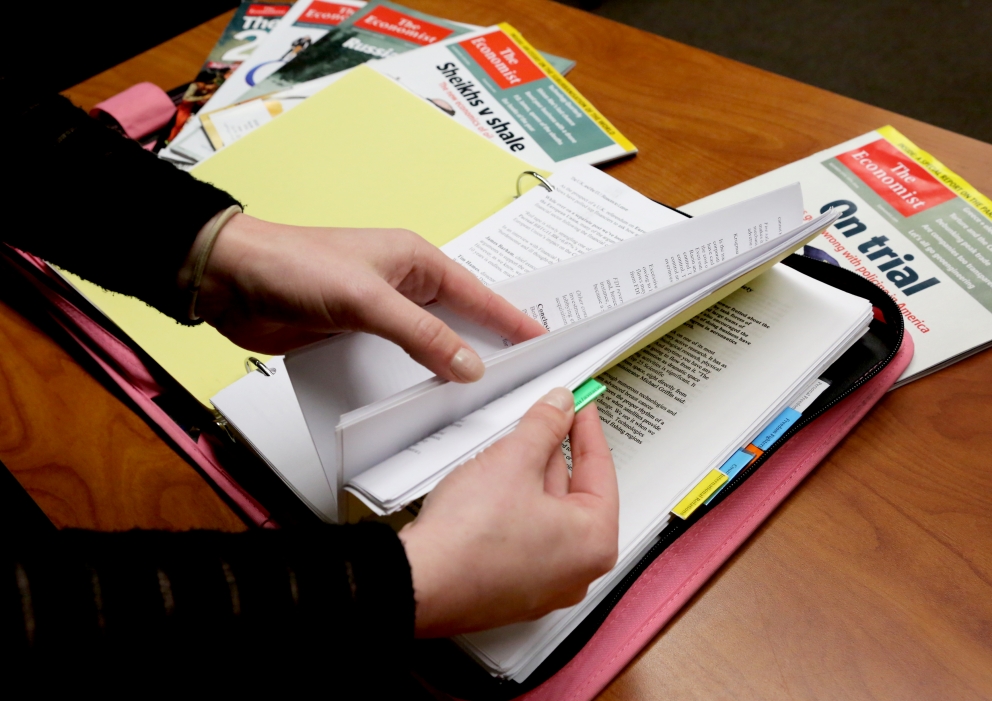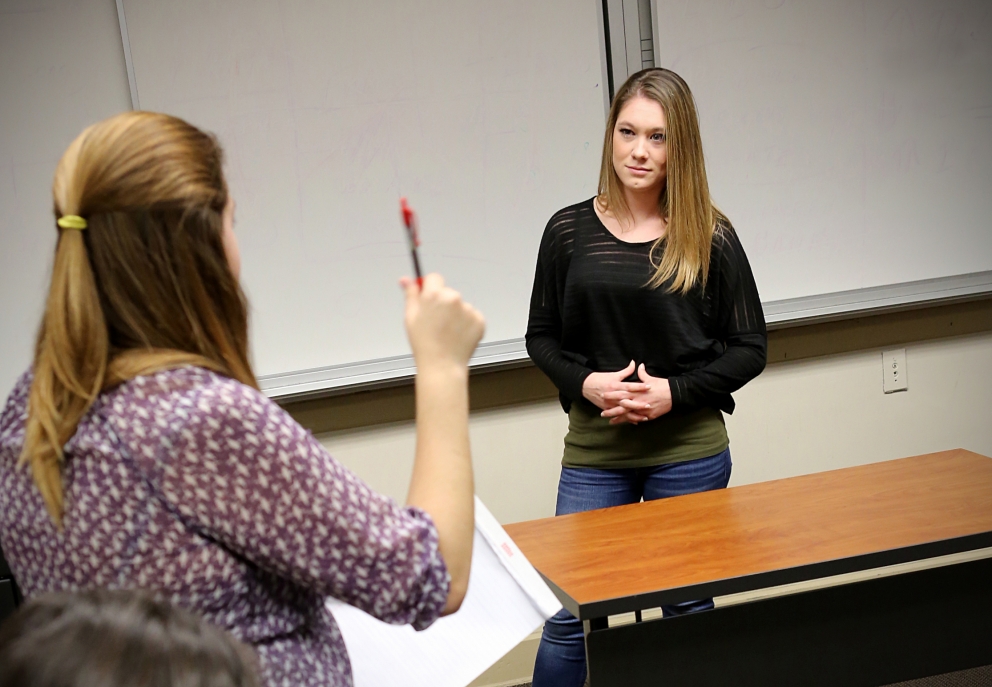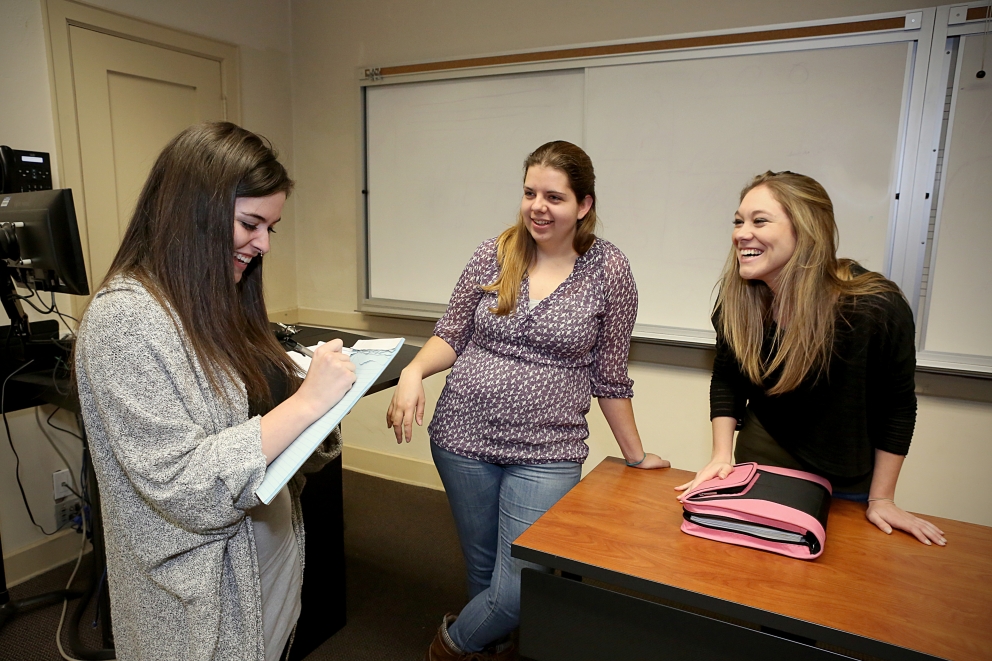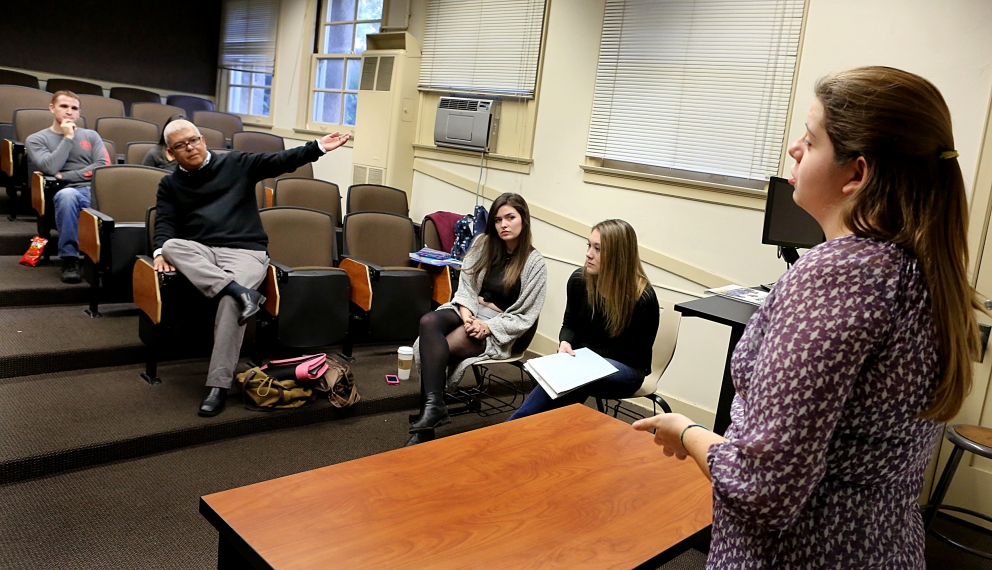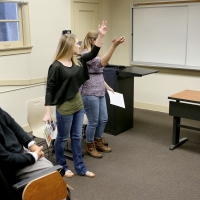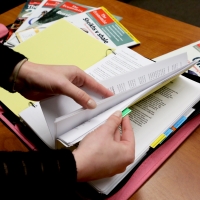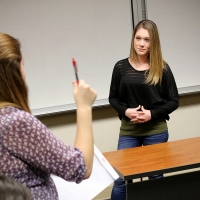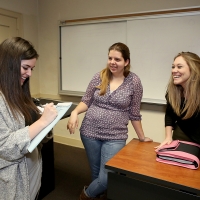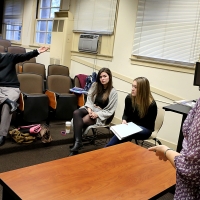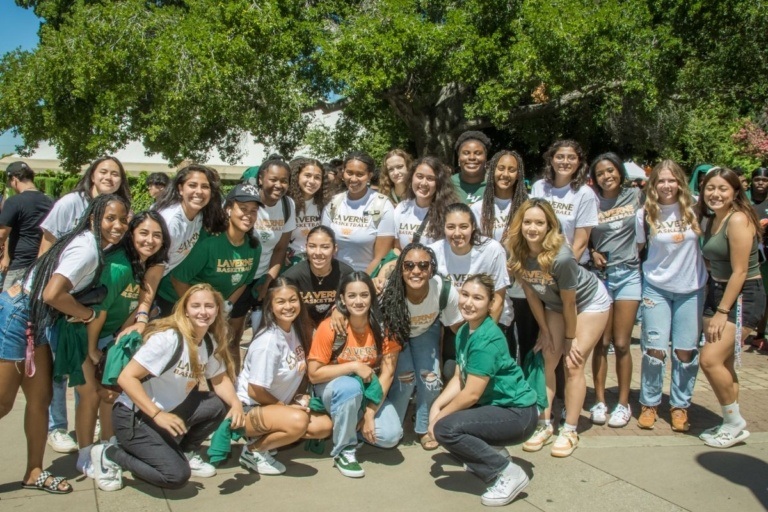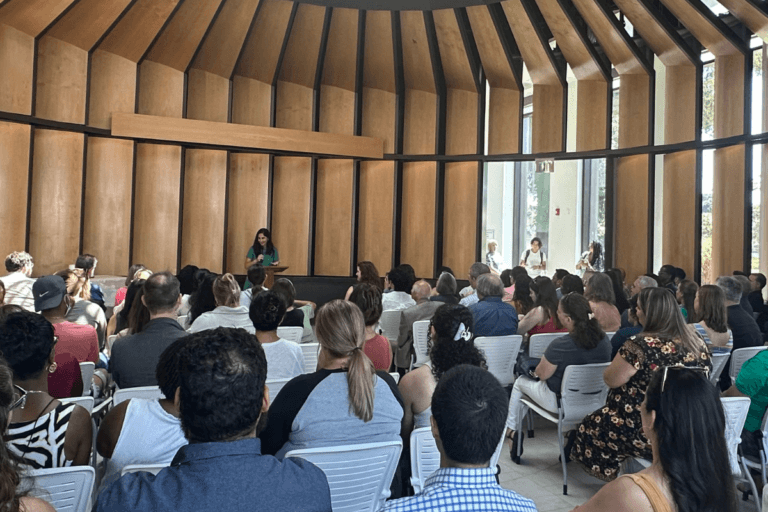Prospering at the Podium
They faced illness, foreign soil and skilled foes. But in the end, University of La Verne’s Debate Team placed high in the World Universities Debating Championships during the institution’s winter break.
Out of 370 teams – many hailing from colleges famous for debate – La Verne placed 65th, said Robert Ruiz, Director of Forensics in La Verne’s Speech and Communication Department.
“I’m just extremely proud of their overall success,” Ruiz said.
Many University of La Verne students flew home for festive celebrations, presents and time with relatives for winter break after a stressful week of final exams. Members of the Debate Team found themselves right back in the classroom with a different kind of family – their teammates.
“It is exactly a second family,” said Gia Karpouzis, a junior on the team.
After days of practice and research, the team traveled more than 8,500 miles to Kuala Lumpur, Malaysia to compete. Five students and one coach left the evening of Christmas Day and returned Jan. 4.
La Verne debaters are known for having a successful track record, being top ranked in the world championships in 2000 and 2001, and the only American team to advance to the elimination rounds in 2003. The team also won the National Open in 2006 and the U.S. Universities National Debate Championships in 2007. Ruiz has shared in that success. He was team captain for two years as a student and now leads the team as an instructor.
Freshman Jake Riggs ranked as the 10th best novice speaker during a competition in November in Oxford, England. That same month, the team took high rankings at the Hugill Cup in Edmonton Canada, and students Joanna Mrsich and Tanner Long were tournament champions at the Steeltown Invitational in Los Medranos.
To prepare for Worlds, the students spent time in the classroom drilling each other on hot topics, world news and social issues. They did not know what subjects would be selected for debate until they arrived, so that meant they needed to be prepared to discuss everything from immigration to ISIS, and Ebola to the economy. Even up-to-the-minute news was fair game, such as the siege in Sydney.
For seniors Natalie Holland and Melanie Nadon, the stakes were high.
“We’re hoping to have a good showing at Worlds and a good showing at Nationals,” Nadon said during a practice session. “It’s our last chance to do that.”
Ruiz had high hopes the team would advance to the elimination rounds, a feat that has not happened in 11 years. La Verne has an edge over other American teams because British Parliamentary Style debate is used in the world competition, and La Verne was the first American college to use the style exclusively.
But the competition was tough. Only 64 teams advanced to eliminations. Teams at the World Championships competed with prestigious universities such as Cambridge, the University of Sydney and Oxford. La Verne, with two students who had never competed at the world championships, and two students who fell ill during the debates, faced challenges.
“There was tons of adversity, but they were just fighting. It’s excellent,” Ruiz said.
With three rounds per day for three days, the tension can accumulate. Team members all have their own tactics for blowing off steam between rounds. Nadon puts on headphones and loses herself in music. Holland likes to read. Karpouzis, who says she never feels intimidated by competitors, gets psyched up with Riggs.
“We’re just egomaniacs,” she says, laughing.
La Verne’s team found itself tied with 11 others – from schools such as Oxford and Cambridge. A tie-breaking element called “speaker scores” gave the edge to another team to advance.
Debaters are now focused on preparing for the national competition, which will be in April at the University of Alaska in Anchorage. Team members will also be helping with a new science communication class for freshmen biology students. The grant-funded class teaches students the art of communication and debate, culminating in a two-day tournament that will be judged by current debate team members, Ruiz said.
“It looks promising for the future,” he said.
